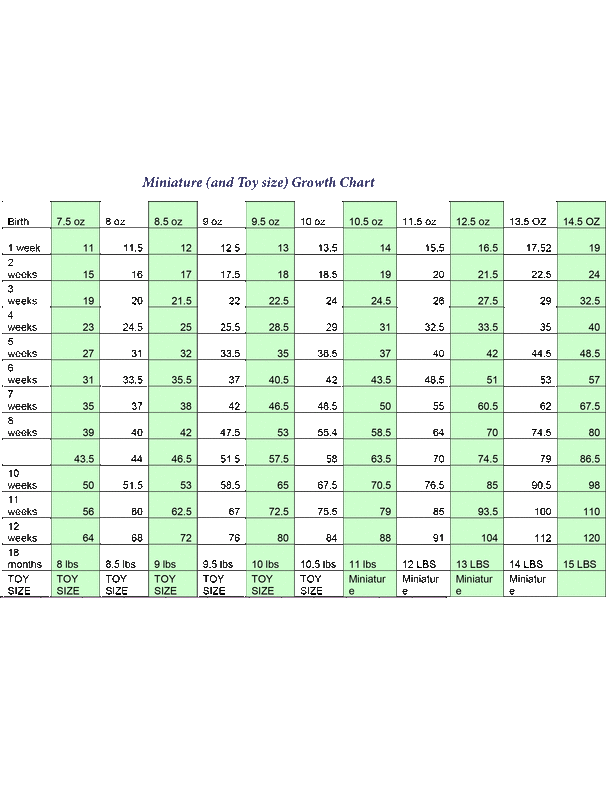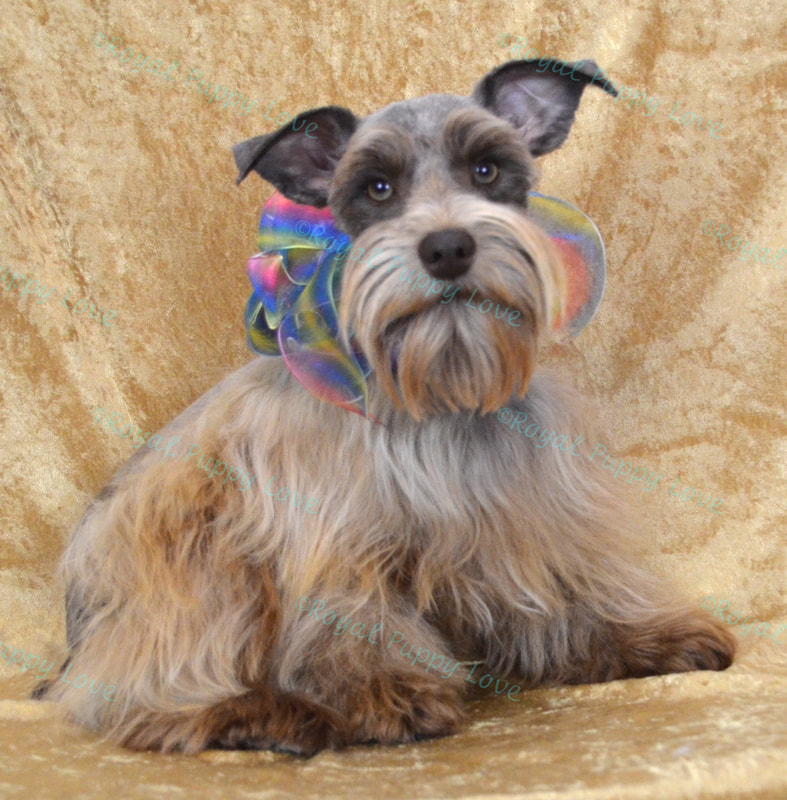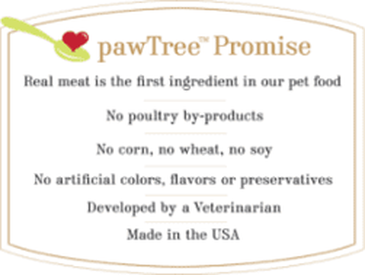Hypoglycemia (low blood sugar)
Hypoglycemia is very common in toy and teacup sized puppies. It is less common in larger breeds but can happen to any small puppy. Hypoglycemia is not a disease or sickness nor is it genetic or inherited. Hypoglycemia is the medical term for low blood sugar. It is a metabolic disorder and death will result unless properly diagnosed and cared for immediately. It is a problem seen most often in toy breeds and is usually found in tiny puppies or under weight puppies brought on by poor diet, failure to eat, stress, or parasites in some form. Hypoglycemia usually happens to puppies from 2-6 months old but it can happen to older toy breeds when they are subject to stress. Most puppies will outgrow hypoglycemia by 6-8 months of age or when they reach 3 pounds.
SYMPTOMS: First signs are weakness, confusion, a wobbly gait, frothing or drooling and seizures are possible. The puppy may begin to appear limp and lifeless. The gums and tongue will be grayish or very light pink (they should be a bright pink). The eyes may appear to be unfocused and unresponsive. Body temperature will drop and the puppy may or may not be shivering and trembling (during the early stages). If left untreated, the condition will get worse and the puppy will go into a a coma or start having convulsions.
CAUSES:
- Over-handling young puppies. Allow your puppy to sleep. Never wake a sleeping puppy. Puppies should sleep 85% of the time. Remember they are BABIES and need REST. Until your puppy is 4 months old, do not play for more than 20 minutes at a time with him. You can increase this to 30 minutes by 6 months of age. Then put him in his crate and allow him to rest. He is a BABY and does not know that he must rest—you must insist that he rest! By all means, check on him while he sleeps and make sure that he has honey water AT ALL TIMES–EVEN IN HIS CRATE OR PEN.
- Change of home or environment or food. Hypoglycemia is usually first triggered by puppies not eating a HIGH CALORIE FOOD or being subject to stress. Puppies can become stressed by trips to the Vet, trip to the groomer, changes in home, daily outings, or skipping a meal. Limit these types of trips until your puppy is 18 months old.
Because teacup puppies are so small, they can’t eat very much at a time so they must be offered more frequent meals during the day. Best case, you would offer a high calorie food every 3-4 hours and your puppy will eat 1 teaspoon to 1 tablespoon. High calorie and nutrient rich foods include: boiled liver, chicken baby food, premium puppy food like Royal Canine, beef baby food, bone meal mixed into canned dog food, and NutriCal or NutriDrops.
TREATMENT:
As the old saying goes “An ounce of prevention is worth a pound of cure” so it is best to make sure your puppy is fed a high calorie, nutrient rich food 4-5 times per day, has honey water available at all times, gets enough rest and is confined in a small area while you are gone, not taken on unnecessary outings, and is kept warm.
Should you find the need for treatment you MUST ACT QUICKLY to bring up your puppy’s sugar level. Nutri Drops or NutriCal must be put in your puppy’s mounth immediatley. If you do not have NutriDrops or NutriCal, use Karo syrup or honey.
Rub the NutriCal or honey (or whatever you are using) on the puppy’s tongue and roof of the month every 10 minutes. As soon as you have this in his mouth, go get a heating pad and set it on LOW. Wrap your puppy in a blanket or towel and then place him on the heating pad. Warmth is essential because puppies in the progressive stages of hypoglycemia rapidly lose body temperature and can go into a coma.
Continue feeding every 10 minutes. Once you have your puppy warm, and have given him some NutriDrops, NutriCal, honey or Karo syrup, call your Vet and follow his recommendations. If you are unable to reach your Vet, do not panic. Continue giving you puppy the NutriDrops, NutriCal, honey or Karo syrup,every 10 minutes for the next hour (even if he seems better in only a few minutes) . He should begin to respond in under 30 minutes. Once your puppy is alert feed him wet food or baby food mixed with the Karo syrup. Always make fresh water available.



